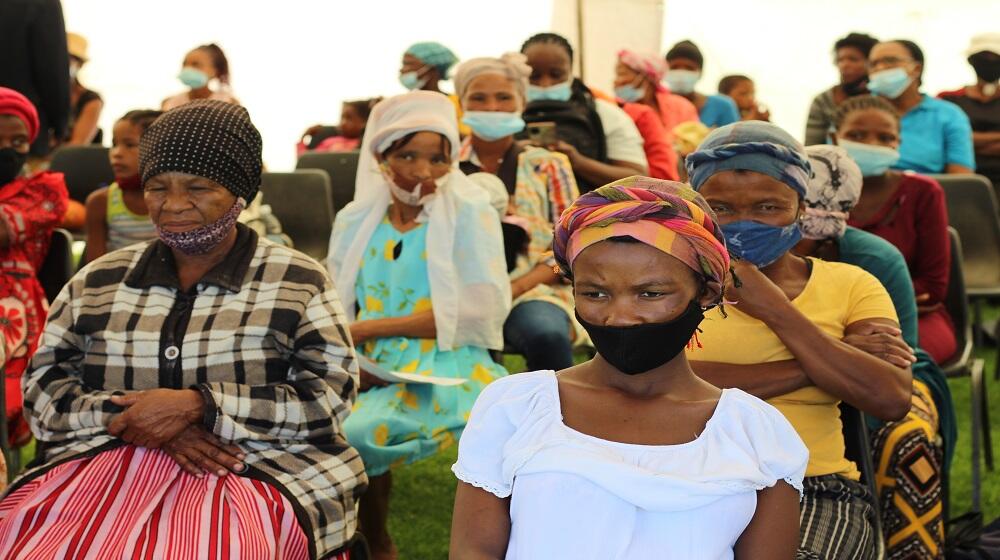GOBABIS – Namibia, Around 1000 women, men including children, gathered at the Legare Stadium in Gobabis, Omaheke Region on 7 March 2022 to commemorate International Women’s Day.
Recognising the urgent need for concerted action, the theme of this year’s International Women’s Day, ‘Gender equality today for a sustainable tomorrow’, acknowledges that “without gender equality today, a sustainable future, and an equal future, remains beyond our reach.”
In her speech, Hon. Doreen Sioka, the Minister Gender Equality, Poverty Eradication and Child Welfare condemned, in the strongest terms, the deaths of two children because of malnutrition in Gobabis recently, and condemned those who abuse government-sponsored social grants.
“We lost two kids in this region due to malnutrition, and it is so shameful,” said the minister, all because of negligence on the part of the parents.
Making reference to the financial grant that the Namibian government is offering in the quest to eradicate poverty, thereby enhancing the lives of the people, the minister warned that no mother should let their children die due to hunger.
She thus urged the community to keep watch of those misusing government grants by indulging in alcohol abuse and to report to the relevant authorities for corrective actions to be taken against them.
According to the 2021 Namibia Multidimensional Poverty Index (MPI) Report, Omaheke Region is one of the six regions with a high incidence of multidimensional poverty (51.4%), across the fourteen administrative regions of Namibia. Kavango West has the highest (79.6 %), followed by Kavango East (70.0 %), Kunene (64.1 %), Zambezi 60.7% and Ohangwena (56,6%).
The minister also spoke about the need to strengthen efforts to protect and safeguard the world’s cultural and natural heritage and strengthen access to safe, inclusive and accessible public spaces, particularly for women, children, the elderly and persons with disabilities.
Sioka said Namibia has and continues to implement legislation aimed at promoting gender equality today for a sustainable tomorrow, as well as addressing gender-based violence and violence against children.
Sheila Roseau, the United Nations Population Fund (UNFPA) Representative delivered remarks on behalf of the UN system in Namibia.
“The time has come to understand the relationship between population and climate change in order to inform the design of policies that safeguard people’s rights while preserving the planet. Let us move forward to ensure a better resilient planet,” she stated.


